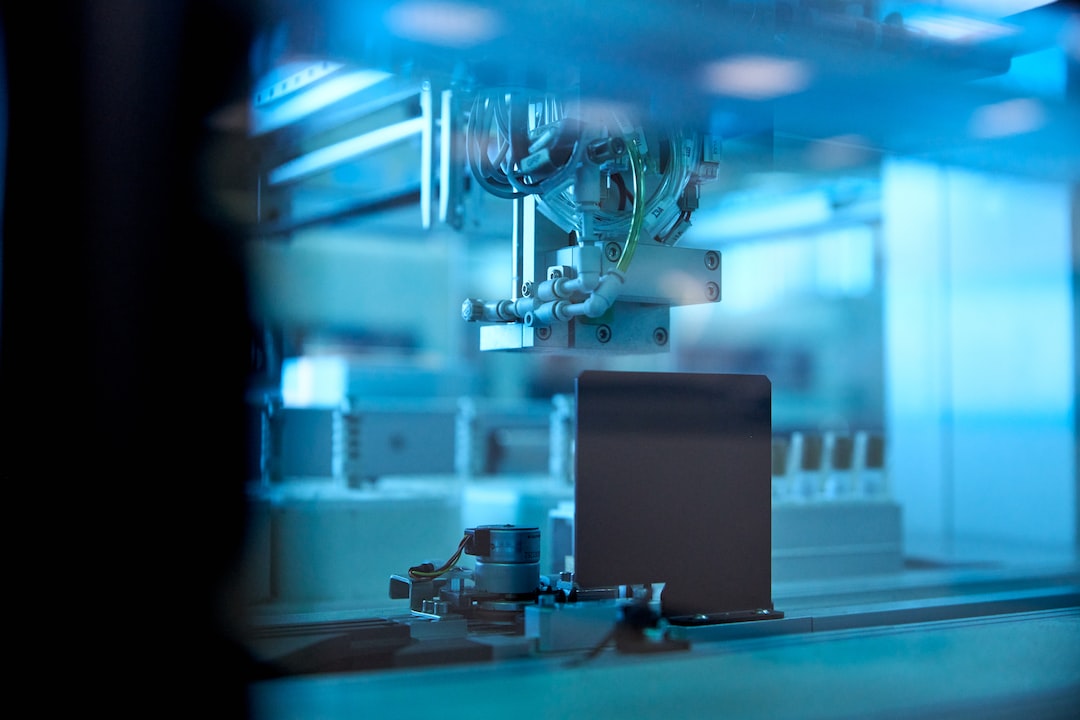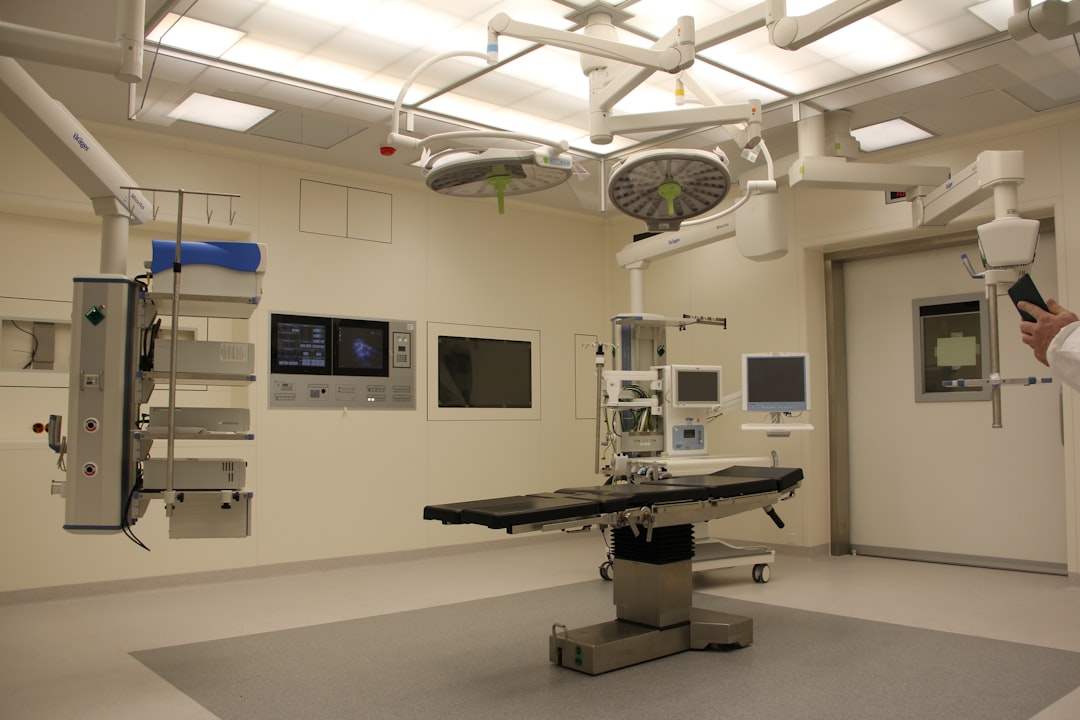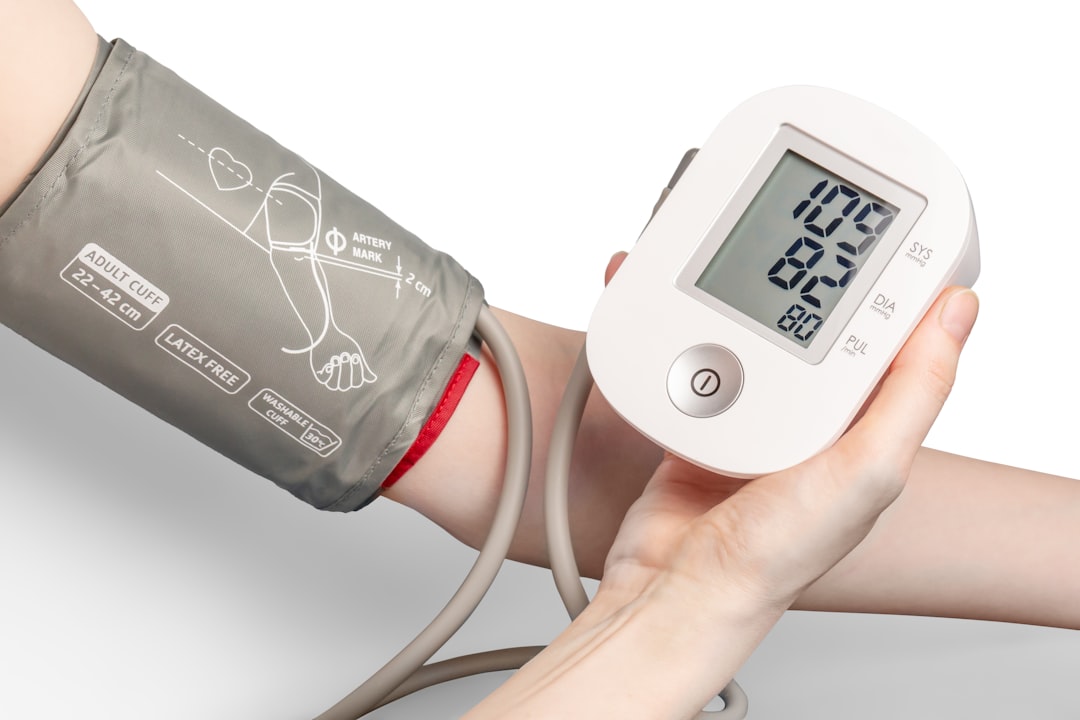Artificial Intelligence (AI) is transforming the healthcare industry in ways that were once thought impossible. The potential for AI in medicine is immense, from improving diagnosis accuracy to streamlining clinical trials, and even predicting disease outbreaks before they occur. With the advancements in technology, machine learning algorithms and deep learning models are being developed to analyze vast amounts of data, providing insights that were previously impossible to obtain.
As we enter the fourth industrial revolution, AI is poised to revolutionize the way we diagnose, treat, and prevent diseases. The use of AI in medicine is not a new concept, but recent advancements in technology have made it more accessible and affordable. With the increasing amount of data generated from electronic health records, medical imaging, and genomics, AI can help healthcare professionals make better-informed decisions, improve patient outcomes, and reduce healthcare costs.
In this blog post, we will explore the different ways AI is being used in medicine, from smart diagnostics to virtual assistants. We will examine the benefits, challenges, and ethical considerations of each application, and discuss the potential impact of AI on the healthcare industry. Join us as we delve into the exciting world of AI in medicine and discover the possibilities that lie ahead.
Smart Diagnostics: AI-Powered Medical Imaging
Medical imaging has come a long way since its inception in the early 20th century. From X-rays to magnetic resonance imaging (MRI) and computed tomography (CT) scans, medical imaging has revolutionized the way doctors diagnose and treat diseases. However, interpreting these images is not always an easy task, and it requires extensive training and expertise.
This is where AI comes in. AI-powered medical imaging is changing the game by providing doctors with an automated, accurate, and fast way to interpret medical images. With the help of AI algorithms, medical images can be analyzed and interpreted in a matter of seconds, allowing doctors to make more informed and timely decisions.
AI-powered medical imaging is also helping to detect diseases at an earlier stage, which is crucial for improving patient outcomes. For example, AI algorithms can detect subtle changes in medical images that may indicate the presence of cancer, even before any symptoms are present. This early detection can lead to earlier intervention and better treatment outcomes.
Moreover, AI-powered medical imaging can help reduce errors and improve the overall quality of care. By automating the image analysis process, AI algorithms can eliminate the risk of human error, which can lead to misdiagnosis and delayed treatment.
In short, AI-powered medical imaging is transforming the way doctors diagnose and treat diseases. With its ability to provide fast and accurate diagnoses, detect diseases at an earlier stage, and reduce errors, AI is proving to be an invaluable tool in modern medicine. As AI technology continues to advance, we can expect to see even more breakthroughs in medical imaging that will further improve patient outcomes and revolutionize healthcare as we know it.
From X-rays to magnetic resonance imaging (MRI) and computed tomography (CT) scans, medical imaging has revolutionized the way doctors diagnose and treat diseases.
Personalized Treatment Plans: AI in Patient Care
As medicine continues to advance, the importance of personalized treatment plans becomes increasingly evident. AI technology is proving to be an essential tool in creating these individualized plans. By analyzing large amounts of patient data, including medical histories, genetic information, and lifestyle factors, AI algorithms can identify patterns and make predictions about which treatments are most likely to be effective for each patient.
AI-powered treatment plans can take into account a wide range of factors that may impact a patient’s health, including their age, gender, ethnicity, and even their geographic location. By considering all of these factors, doctors can create treatment plans that are tailored to each patient’s unique needs and circumstances.
One of the most exciting applications of AI in patient care is in the field of precision medicine. This approach involves using genetic information to identify specific mutations or biomarkers that are associated with certain diseases. AI algorithms can analyze this data to create personalized treatment plans that target these specific mutations, potentially leading to more effective treatments with fewer side effects.
Another area where AI is making a significant impact is in the early detection of diseases. By analyzing medical records and other data, AI algorithms can identify patients who are at high risk for certain conditions, such as cancer or heart disease. This allows doctors to intervene early with preventative measures, potentially saving lives and reducing healthcare costs.
Overall, the use of AI in patient care has the potential to revolutionize the way we approach healthcare. By creating personalized treatment plans and identifying patients at high risk for disease, AI technology can help doctors provide more effective, targeted care to their patients. As the field continues to evolve, we can expect to see even more exciting developments in the years to come.
By analyzing large amounts of patient data, including medical histories, genetic information, and lifestyle factors, AI algorithms can identify patterns and make predictions about which treatments are most likely to be effective for each patient.
Streamlined Clinical Trials: AI in Drug Development
The drug development process can be a long and tedious journey, taking years and costing millions of dollars. This is where AI can step in and revolutionize the way clinical trials are conducted. By utilizing machine learning algorithms, AI can analyze vast amounts of data, including patient information, genetic data, and clinical trial results, to identify potential drug candidates and predict their efficacy.
One of the most significant challenges in drug development is identifying patients who will respond well to a particular treatment. AI can help by analyzing patient data and identifying biomarkers that indicate which patients are most likely to benefit from a given treatment. This can help researchers streamline clinical trials by identifying the right patients to enroll, reducing the time and cost of the trial.
In addition to identifying patients, AI can also help researchers design more efficient clinical trials. By analyzing historical data, AI can identify potential biases in the trial design and suggest changes that could improve the trial’s accuracy and efficiency. This can help researchers avoid costly mistakes and ensure that the trial produces meaningful results.
Another area where AI can make a significant impact is in the analysis of clinical trial results. Traditionally, this has been a time-consuming and error-prone process, with researchers manually reviewing and analyzing data. AI can automate this process, analyzing the data much faster and with greater accuracy than humans. This can help researchers identify potential safety concerns and ensure that the trial meets regulatory requirements.
Overall, AI has the potential to streamline the drug development process, reducing costs and improving the efficiency and accuracy of clinical trials. As researchers continue to explore the possibilities of AI in drug development, we can expect to see significant advancements in the field of medicine in the years to come.
AI can help by analyzing patient data and identifying biomarkers that indicate which patients are most likely to benefit from a given treatment.
Predictive Analytics: AI in Disease Prevention
As the old saying goes, “prevention is better than cure.” And with AI, we are now able to predict diseases before they even occur. Predictive analytics is the use of data, statistical algorithms, and machine learning techniques to identify the likelihood of future outcomes based on historical data. In healthcare, this means that AI can be used to predict the likelihood of a patient developing a certain disease.
AI-powered predictive analytics can be used in a variety of ways in disease prevention. For example, it can be used to identify patients who are at high risk of developing a certain disease, and then take preventative measures to reduce that risk. This could include lifestyle changes, such as increasing exercise or changing diet, or medical interventions, such as prescribing medication or monitoring vital signs.
One of the most exciting applications of predictive analytics in disease prevention is in the area of genomics. AI can be used to analyze a patient’s genetic data and identify potential genetic risks for certain diseases. This information can then be used to develop personalized prevention plans that take into account the patient’s unique genetic makeup.
Another area where AI is making a big impact in disease prevention is in the analysis of medical imaging data. AI algorithms can be used to analyze medical images, such as X-rays and MRIs, and identify early signs of diseases such as cancer. This early detection can be crucial in preventing the disease from progressing and becoming more difficult to treat.
Overall, predictive analytics is a powerful tool in the fight against disease. By identifying patients who are at high risk of developing certain diseases and developing personalized prevention plans, we can reduce the incidence of disease and improve patient outcomes. And with AI, we are able to do this more accurately and efficiently than ever before.
By identifying patients who are at high risk of developing certain diseases and developing personalized prevention plans, we can reduce the incidence of disease and improve patient outcomes.
Virtual Assistants: AI-Powered Healthcare at Home
The advancements in AI technology have brought about a new era in healthcare, where virtual assistants are becoming a reality. Virtual assistants are AI-powered tools that can help individuals manage their health more efficiently from the comfort of their homes.
AI-powered virtual assistants can take on several roles in healthcare, from providing medical advice to helping patients manage their medications. These assistants can also help patients monitor their vital signs, such as blood pressure, heart rate, and blood sugar levels. They can also alert patients when it’s time to take their medications or schedule appointments with their healthcare providers.
Virtual assistants can also help patients with chronic conditions, such as diabetes or heart disease, manage their health more effectively. These assistants can monitor patients’ symptoms and alert healthcare providers if any issues arise. They can also provide patients with personalized treatment plans, based on their medical history and current condition.
In addition to helping patients manage their health, virtual assistants can also provide valuable insights to healthcare providers. By analyzing patient data, these assistants can identify patterns and trends that may be missed by traditional methods. This information can be used to develop more effective treatment plans and improve patient outcomes.
Virtual assistants are also beneficial for individuals who live in remote or underserved areas. These assistants can connect patients with healthcare providers, even if they are located hundreds of miles away. This technology can help bridge the gap in healthcare access and improve health outcomes for individuals in these areas.
Overall, the rise of virtual assistants in healthcare represents a significant step forward in AI-powered healthcare. As the technology continues to evolve, we can expect to see even more innovative ways that virtual assistants can help individuals manage their health and improve healthcare outcomes.
They can also provide patients with personalized treatment plans, based on their medical history and current condition.
Conclusion: The Future of AI in Medicine
As we have seen, AI is revolutionizing the way we approach healthcare. From smart diagnostics to personalized treatment plans, from streamlined clinical trials to predictive analytics and virtual assistants, AI is making healthcare more efficient, effective, and accessible.
But the potential of AI in medicine goes beyond these applications. With the help of AI, we can analyze vast amounts of data to identify new patterns, insights, and correlations that can inform our understanding of diseases, treatments, and outcomes. We can also develop new drugs and therapies that are tailored to individual patients based on their genetic makeup, medical history, and lifestyle factors.
Moreover, AI can help us address some of the biggest challenges facing healthcare today, such as the shortage of healthcare professionals, the rising costs of care, and the need for better prevention and early detection of diseases. By leveraging AI, we can empower patients to take more control of their health, enable healthcare providers to deliver more personalized and effective care, and accelerate the pace of medical innovation.
Of course, there are also concerns and challenges associated with the use of AI in medicine. These include issues related to data privacy, ethical considerations, and the potential for bias and discrimination. As we continue to develop and deploy AI in healthcare, we must ensure that we do so in a responsible and transparent manner, taking into account the needs and perspectives of all stakeholders, including patients, healthcare providers, and policymakers.
In conclusion, the future of AI in medicine is bright and promising. By harnessing the power of AI, we can transform healthcare into a more efficient, effective, and equitable system that benefits everyone. As we embark on this journey, we must remain vigilant, thoughtful, and collaborative, working together to unlock the full potential of AI for the betterment of human health.





